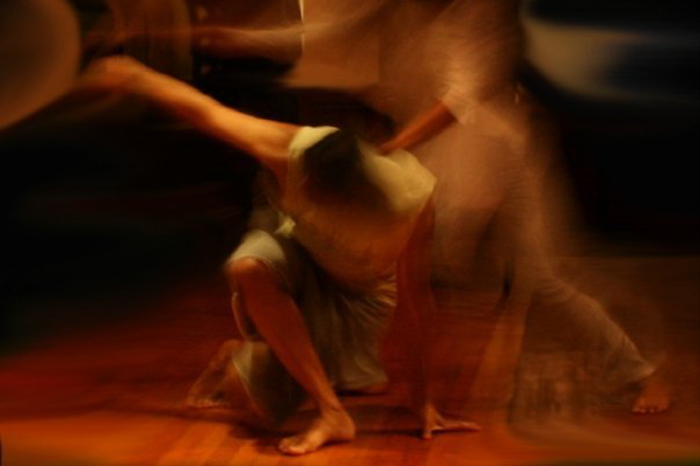Early in the writing process, performing is my worst enemy. The cursor keeps blinking while I keep staring. The problem in these moments is that I’ve leapfrogged over writing, straight to publishing, and to what I think the audience wants from the final draft. And then … I’m frozen.
I know what it’s like to perform. For fifteen years, I was a dancer trained in kathak, a beautiful, precise classical form from Northern India that requires a discipline and virtuosity akin to ballet. And yet, what I loved most about dancing was practicing, especially during the early days of a new piece. Our instructions during these sessions were to explore. What happens when you move your arm this way? Or what if you twist that way? What if you jump instead of turn? Or turn while you jump? All the beautiful what ifs emerge when there’s no pressure to get the movement exactly right every time.
Dance has wonderfully demarcated lines between performance and practice. The practice space is the studio, while performing usually happens on a stage. In the studio there’s a mirror; on stage, there’s an audience. Even the clothes are different: warm-up gear versus stage costumes. In writing, it’s harder to mark these distinctions. I don’t change outfits or write in a physically different space when I’m in practice-and-discovery mode. Plus, writing on the page feels more permanent than movement, which doesn’t leave a physical artifact behind.
What if you jump instead of turn? Or turn while you jump? In rehearsal, all the beautiful what ifs emerge when there’s no pressure to get the movement exactly right every time.
But marking this distinction between practice and performance is critical. As a coach, I work a lot on helping students and clients release “performance anxiety,” that feeling that every sentence must be exactly right. We move past this by stretching our muscles, if you will, through conversation. Recently, I was coaching a scientist through a section of her memoir, a thorny chapter about her work inside prisons, giving incarcerated people access to science education and the natural world. This is a woman who has written over 150 scientific papers, but in describing her relationship to a project that spread to prisons across the country, the language and story lacked energy. It sounded, well, like an academic paper, not like a memoir.
“Forget the writing for a moment,” I said. “When did you first think about bringing nature to prisons? Where were you?”
Her gaze shifted inward and her face tilted upward as she called up a memory. “I was on my way to doing field work. I drove by a prison that was literally on the border of the Olympic rainforest. The trees were knocking up against the barbed wire fence.” That last sentence charged my imagination. I could see these trees against the fence, and from there I could see the people inside the prison cut off from the natural world. By letting go of what she thought the final draft was supposed to sound like and stepping off the stage, the writing got both easier and better. The memory gave her the opportunity to play with details and language.
I loved performing as a dancer. Being on stage and connecting with the audience is exhilarating. However, performance was only possible through rehearsal, not just to perfect a sequence but to discover it. The adage “practice makes perfect” is a fine one, but as a writer and coach, I’m more interested in “practice leads to discovery, which leads to a spark, which then leads to, after drafting with flexibility, a moving and truthful piece of writing.” Okay, it’s not very catchy. But it’s far easier to let words flow to the page when we aren’t blinking into the harsh stage lights.
Reena coached at Hillside from 2022-2024.




